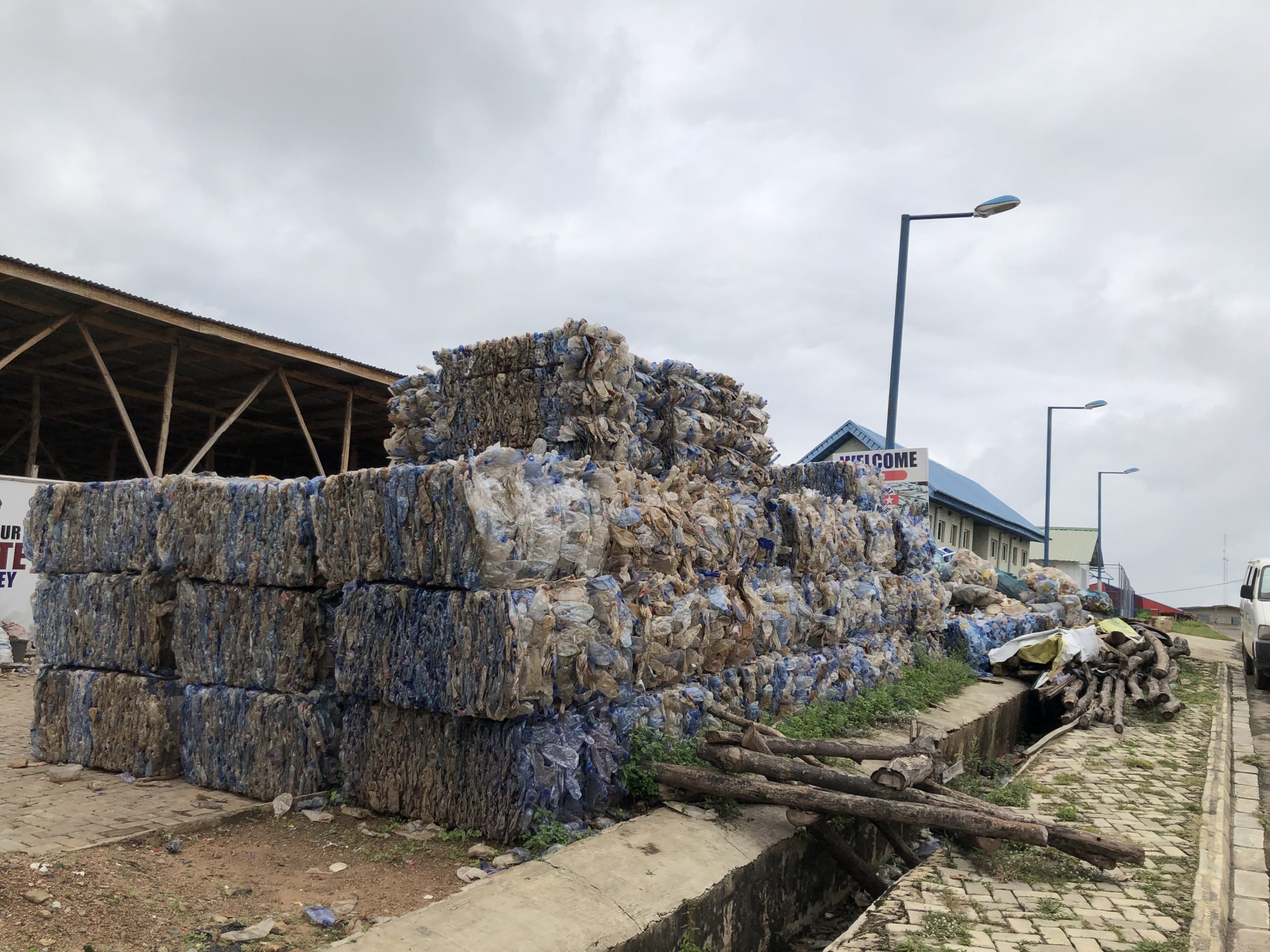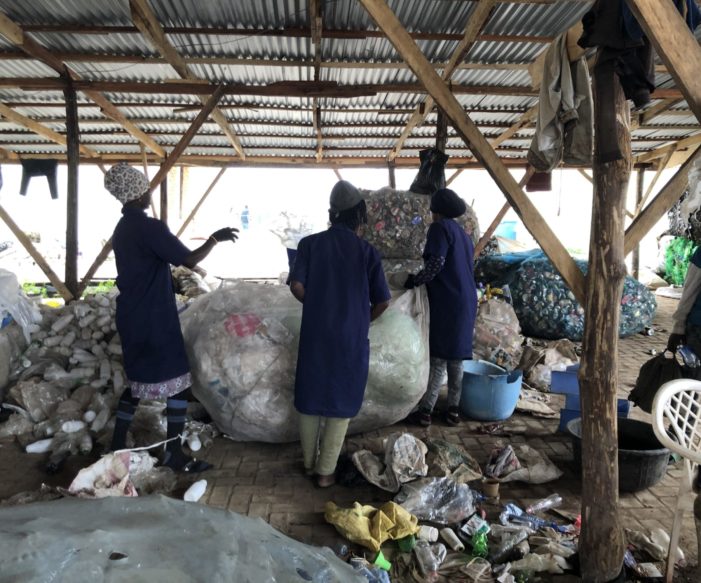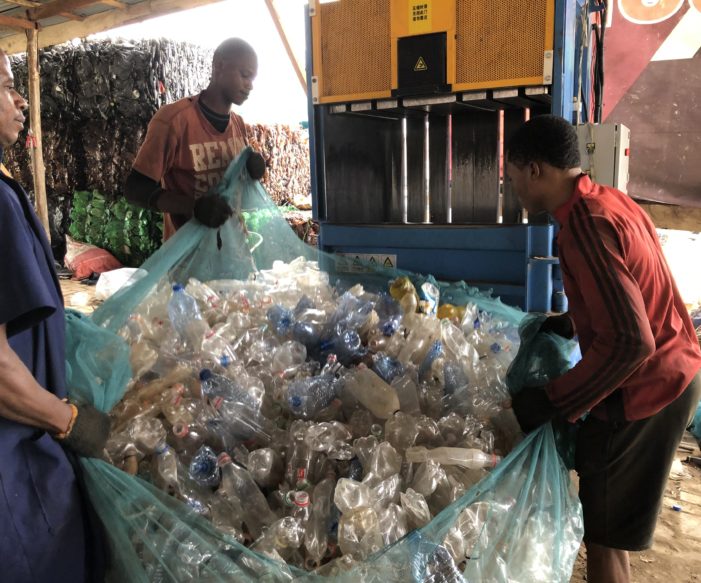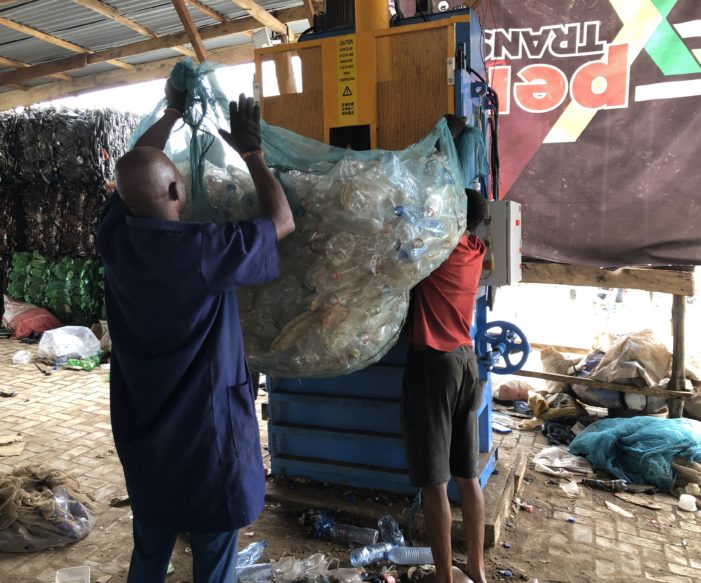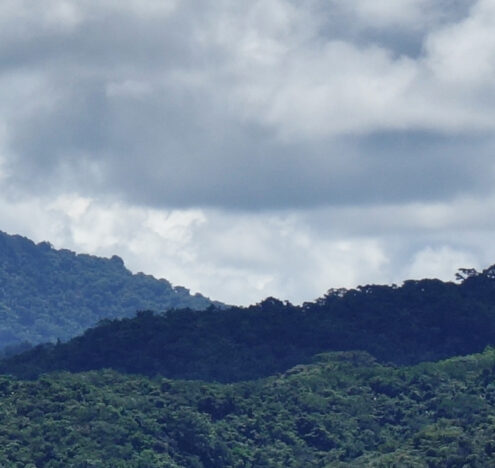One morning in September, Adejumo Omalara, with other women wearing matching uniforms, sat before a huge pile of dirty, used bottles and cleaned them with her gloved hands. For the past eight months, Omolara has left her home every morning to go to work for a waste recycling organization in Osogbo, a city in southwestern Nigeria. With her colleagues, she treats and compresses huge piles of bottles, cartons, and nylon bags before sending them on to the official recycling companies.
“Since I started working here, I have been able to feed myself properly and keep savings,” Omolara said, picking another bottle to treat. “I feel comfortable working here. People see it as dirty work but working here saves our pocket and the environment.”
FROM BANKING TO RECYCLING
In 2017, Olatunji Olaribigbe found himself still hunting for a secure job two years after finishing his university degree. At first, he got a job at a microfinance bank but his income was very low and he found the working environment stifling. During the weekends, to stay afloat, he went out to pick up waste to sell it to small-scale recyclers. When he compared his income from the waste business to his salary at the bank, he resigned from the financial sector. He later realized that the distributors he sold his small bundles to had a larger, wholesale collector in a different state, who would buy it and resell it to the larger private recycling companies like Nixin Paper Mill, and then Lexsz Plastic Limited would process the waste.
Nigeria has been working to address the country’s trash crisis, and experts have urged the Nigerian government to be more proficient on waste management.
Once he had an idea of the industry, Olatunji saw the chance to expand. He put his educational and business background to use and drafted a proposal to the private recycling companies operating in his sphere to make him their wholesale source in Osun state. The whole process of establishing himself took him two years, from searching for a suitable location for the business to gathering his savings to buy a baler, a compressing machine that squeezes a large quantity of waste. By 2021, Olatunji established himself as a major wholesale waste collector in the state by the name of Mygbolat Waste Management. With the technical edge the baler machine granted him, he soon had more work than he could manage alone. So he started hiring.
The rate of unemployment in Nigeria quintupled in the last decade. In 2010, the rate was at 6.4% and by the end of 2020, it rose to 33.3%. With the country’s economy in jeopardy, and the labor market becoming difficult to crack, the rate is likely to get even worse.
“Unemployment motivated me. If my pay at the bank was enough, I wouldn’t be doing this. Things are getting worse in Nigeria and I am happy that I found a way out,” Olatunji said.
There are hundreds of thousands of young Nigerians whose certificates have become useless and failed to guarantee them decent-paying jobs. Many are forced to settle for menial jobs that have no relation to their area of study. In a labor force of 80.2 million, 21.7 million Nigerians are unemployed, a figure that exceeds the populations of some countries.
THE OPPORTUNITIES IN WASTE MANAGEMENT
Since establishing himself, Olatunji now has over 50 people working directly for him, and other freelancers that he pays on commission. But apart from creating employment, Olatunji is also contributing to Nigeria’s waste management industry. Globally, pollution of waterways contributes to the impacts of climate change. In Nigeria, over 130, 000 tons of plastic waste enters the country’s water bodies every year, worsening erosion, and contributing to flooding and water contamination. Almost every resident in Lagos complains of floods during the rainy season.
Nigeria has been working to address the country’s trash crisis. In 2021, the federal government together with the UN Industrial Development Organization (UNIDO) unveiled policies in tandem with the Sustainable Development Goals that encourage “a clean and healthier environment.” This year, the Basel Convention Coordinating Centre for the African Region (BCCC-Africa), which involved stakeholders from the Federal Ministry of Environment, commenced a workshop project tagged “promoting environmentally sound management and control of transboundary trade of plastic waste in Nigeria.”
Experts have urged the Nigerian government to be more proficient on waste management. Baliqees Salaudeen, a climate, social and environmental activist, urged that “collaboration across stakeholder sectors” would help in tackling climate and environmental issues. Although Nigeria and Africa at large contribute very little to global emissions and climate problems, the effect of climate change would have a great impact on the continent.
“Tackling climate or environmental issues is not only the work of the government, but every one of us because we as the citizens, our health is also at stake. And it is always health over wealth, no matter what,” Baliqees said in an interview. Baliqees herself had led a group of young people and initiated a social movement called “Pick That Trash” when she was based in Ilorin, Kwara State. Every morning, Baliqees would lead young people like herself into neighborhoods to collect used bottles, nylon bags, and polythene bags and do public awareness-raising with the local residents about why waste management is important.














